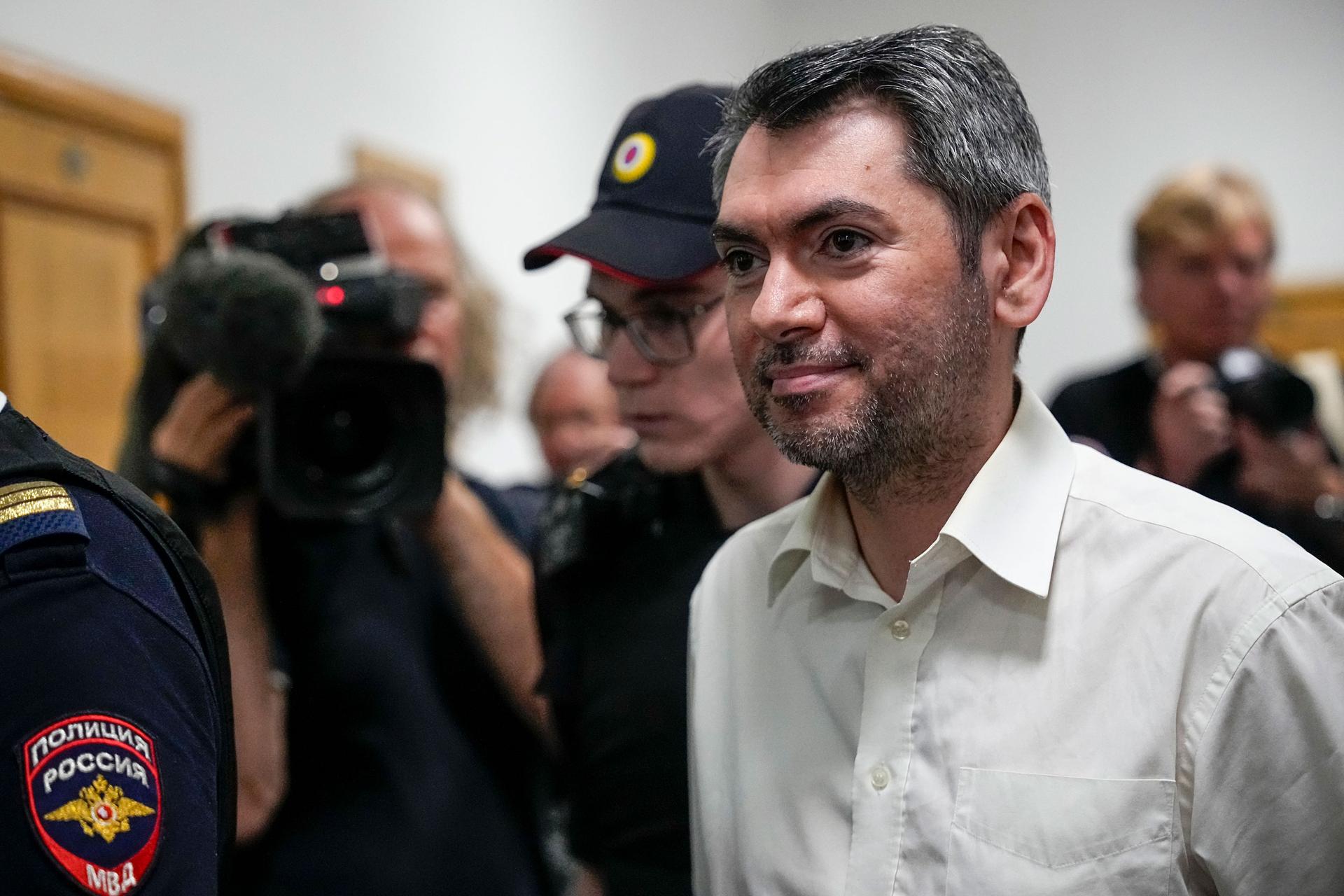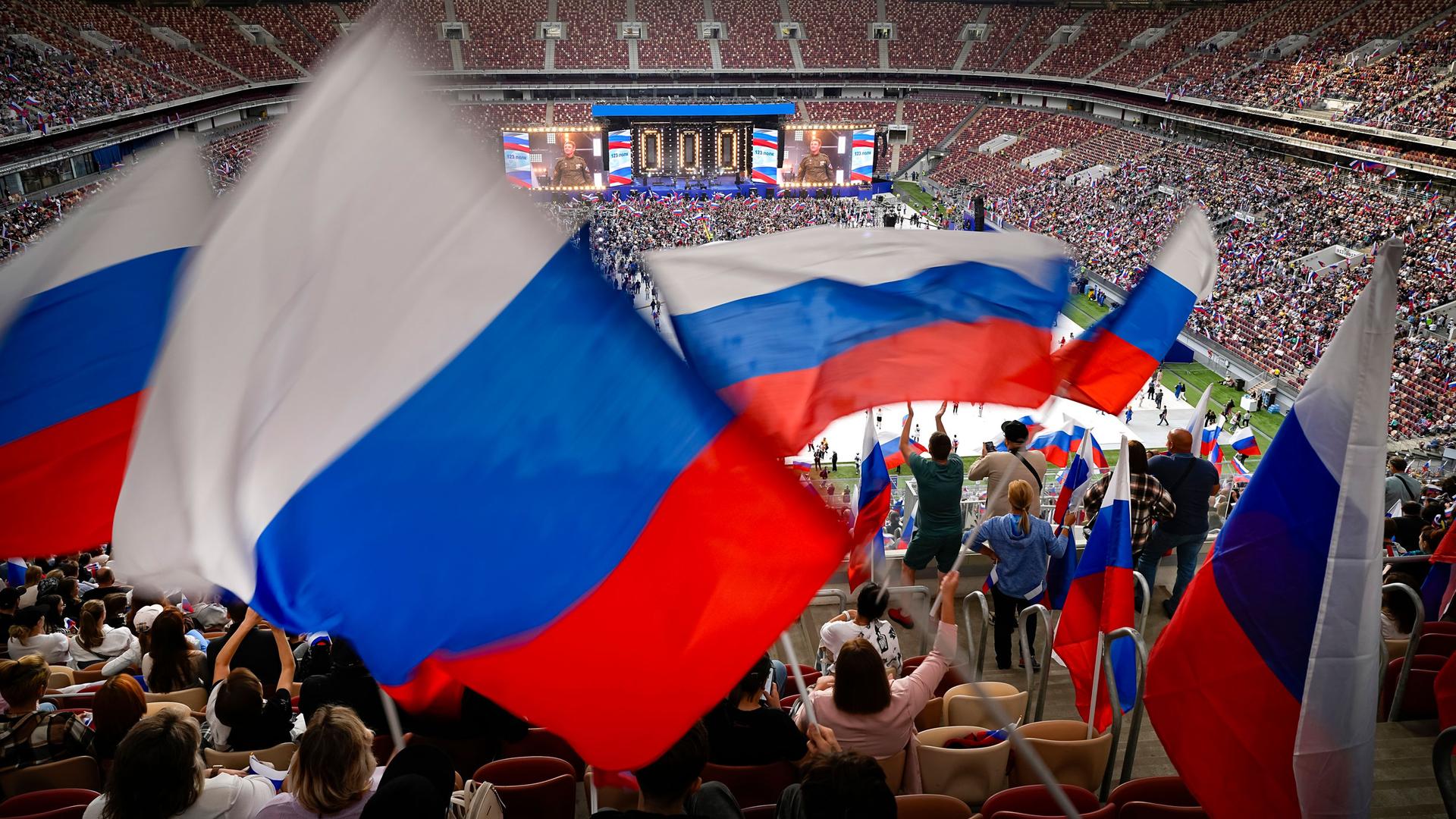Alena Popova is a Russian opposition politician who has organized scores of political campaigns. She has also run for office multiple times.
But the political process in Russia is at a low point today, she said.
“Everything changed because of the war, everything is worse.”
These days, Popova is a politician in exile in the United States with the Wilson Center in Washington. Popova said that political repression in Russia has accelerated since Russia’s invasion of Ukraine.
“We have dictatorship in Russia, it’s not a democracy, it’s dictatorship, and in dictatorship, you don’t have any elections. But you have this will of the people, to change something, and you need not to let the people think that they are just slaves, or the official authorities can take any power over them.”
Popova understands that elections today in Russia are often staged. But she still encourages her former constituents to go to the ballot box.
“Despite all the things that are happening in my own country, even if you don’t like any candidate, you need to vote, even against everyone.”
This kind of “protest vote” strategy is also being deployed by the organization led by Alexei Navalny, an opposition politician who is currently a political prisoner.
Despite his imprisonment, he and his team are still communicating with their supporters.
Earlier this week, Navalny’s team posted a video encouraging his supporters to vote for anyone aside from Vladimir Putin’s United Russia.
András Tóth-Czifra, a fellow with the Eurasia program of the Foreign Policy Research Institute, said that strategy has worked in the past, but Russia these days is much more repressive.
Most independent candidates are barred from running, and certain election processes have changed.
“Online voting, I would say, is a kind of silver bullet which can be used to change electoral outcomes.”
In previous years, election monitoring organizations have alleged that e-votes were, in fact, falsified and used to swing elections in favor of United Russia.
But now, even speaking about these kinds of irregularities could be risky.
“You know, any civil or political activist right now in Russia understands that he’s under risk,” said Stanislav Andreichuk, the co-chair of Golos, an independent Russian election monitoring group.
Just last week, Russian authorities arrested one of Andreichuk’s colleagues, Grigory Melkonyants.

Andreichuk said this is the type of political intimidation that’s become common in Russia.
“When you have such kind of censorship, it is very uncomfortable to talk, even with your friends and your neighbors and so on, because you are not sure that they will have the same position.”
Russian political scientist, Alexander Kynev, said that despite the war making all the headlines on state TV, it’s been downplayed in the election cycle.
“People are trying to live like they did in the past, and not pay attention to the war,” he said.
From the Kremlin’s perspective though, Kynev said that these regional elections are all about Putin’s presidential reelection bid next year.
The presidential election campaign has already begun, and that’s the vote that really matters, he added. The Kremlin will use next year’s elections as a sign of the population’s support for the war in Ukraine.
Opposition politician Popova said even though it’s obvious who Russia’s next president will be, “all the dictatorships, anytime will end the same way. All the dictatorships will be ruined by themselves.”
And that’s why voting, and building strong democratic instincts is so important, she added. Once this regime implodes, Russian citizens need to be ready.
The World is an independent newsroom. We’re not funded by billionaires; instead, we rely on readers and listeners like you. As a listener, you’re a crucial part of our team and our global community. Your support is vital to running our nonprofit newsroom, and we can’t do this work without you. Will you support The World with a gift today? Donations made between now and Dec. 31 will be matched 1:1. Thanks for investing in our work!
